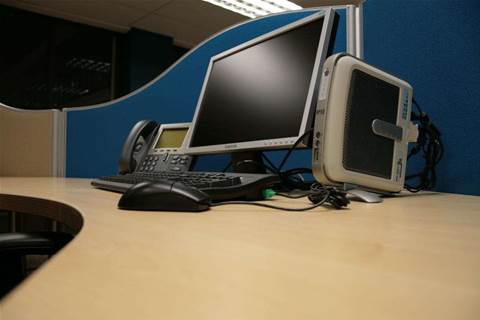When national ISP iiNet was building its follow-the-sun contact centre, uppermost in IT manager Matthew Toohey's mind was managing its risk.
Toohey chose VMware's virtualisation technology for 200-400 new desktops because with offices from Auckland to Cape Town, the ISP could build a virtual call centre infrastructure far from its home in Perth on Australia's west coast.
The set-up dropped the cost of implementation and management, guaranteed disaster recovery and reduced risk by simplifying power redundancy.
Only a single instance of the desktop operating system needed to be stored, with only subtle differences between users subject to updating. The big win for iiNet is its virtual desktops are "fast and secure", he says.
Where the exercise became difficult was managing the Microsoft licences - a common stumbling block for those investing in virtual desktops.
"The single biggest issue I've had with virtual desktops is licences. The server side is bedded down - I know what my costs are with confidence but in terms of desktops ... I feel like I'm buying the same component twice," says Toohey.
In response iiNet has a fixed pool of devices for its call centre whose licences are locked down individually. He says the licence advice he gets from Microsoft varies: "Depending on who you talk to you get a different answer".
As Toohey's experience suggests, the first question anyone considering a virtualised desktop should ask themselves or their customer is about Microsoft licences.
To understand why licences are important we need to remember what the world was like before we had virtual machines - those pseudo-computers that look and act like real PCs but are stripped of the need to relate directly to the underlying hardware that powers them.
Microsoft's DOS and later Windows software emerged from an environment where the operating system and applications were tightly knit with the hardware (processors, memory and storage) that supplied them with their grunt. It seemed logical to make a software licence cover the actual hardware device under it.
But virtual machines change the rules because the "PC" exists in the ether, as a file or "image" on host hardware that is stored anywhere from a desktop to the data centre.
The image is no longer tied to the device but Microsoft's view is largely that this is still the case.
It's for this reason that IBRS analyst Kevin McIsaac recommends anyone considering such desktops gets top-notch legal advice at the start. He says the world views of Microsoft and virtualisation vendors are "incompatible".
"Resellers have to be very careful of Microsoft licensing because it has a lot of gotchas.
"[It] is all device based whereas the virtual desktop is really a server-centric view of the world. You might think you have 10 images so you need 10 licences; no, you need a licence for every device that can connect to that image.
"If you have 10,000 devices in your organisation and no way to control or audit those devices you may need 10,000 licences."
He says Microsoft doesn't litigate customers caught short, instead preferring to call in a software auditor for a chat with the potential infringer to come to a figure to make the problem go away.
That's usually a "very scary" number, he says.
Dr McIsaac recommends resellers do a software audit and implement controls before virtualising their customers' desktops; he recommends the AppSense tool for this.
And he warns resellers to stay within the bounds of any indemnities provided by their suppliers.
"If I was a reseller, whatever I was told by my supplier I would want indemnity - make it legal so that if someone does an audit and it comes to a couple million bucks and Microsoft comes to me [the reseller] I can go to my supplier."
Read on for more advice on virtual desktops...







_(27).jpg&h=142&w=230&c=1&s=1)





.jpg&w=100&c=1&s=0)








_(1).jpg&q=95&h=298&w=480&c=1&s=1)


